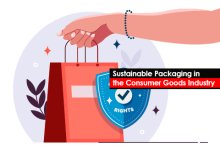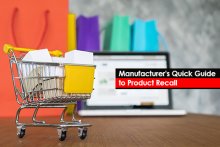With the dynamic landscape and the new reality due to the pandemic, the chemical industry has undergone a huge shift in demand. In the chemical market, the end of life for certain materials can start something new. Implementing a series of targeted, strategic initiatives across major functional areas can help manufacturers cater to short term demands. However, focusing on the short term does not necessarily mean neglecting long-term opportunities. Manufacturers must generate sustained growth by investing in innovation, emerging applications, and adopting new business models.
In addition to the above, chemical companies must overcome the following hurdles to remain successful in the market:
Regulatory Compliance
Regulatory compliance plays a major role in the chemical industry and is also one of the major challenges faced by chemical manufacturers. With a maze of regulations and mandates in place for chemical, occupational, environmental, and product safety, it is important to understand which regulations do and do not apply to your company. Deviations from established formulae in base components and potency variations will greatly affect Regulatory compliance. Dedicated staff members must be assigned to monitor the applicable chemicals, product safety, and environmental regulations. Regular audits can help the companies understand where they stand in terms of Regulatory compliance.
Labeling Demands
Labeling is also one of the top challenges in the chemical industry due to the extraordinary risk management issues. Mistakes can be disastrous in this sector. Labeling requirements for each step, i.e., from raw materials to end-user delivery, must be thoroughly understood and implemented without any failure. With the emergence of globally harmonized labeling standards, the chemical industry must advance its traditional product labeling models to accommodate the latest standards. Additionally, manufacturers must prioritize maintaining the transparency of safety information across all channels, regions, and product life cycles. A single centralized and secured labeling system can streamline the label life cycle management and control the flow of information through various phases.
Producing Diverse Product Portfolios
Many of the biggest chemical companies have been diversified due to past Mergers & Acquisitions (M & As), which exert much pressure to restructure portfolios to focus on core businesses. Manufacturers can grow earnings in various operating environments with a diverse product portfolio that can withstand changes in the trends. Also, industry players must keep an eye open on these larger trends shaping consumer preferences to focus on the latest growth opportunities and find ways to create new value from current resources.
Digitalization
The chemicals industry is a slow mover compared to other industries when it comes to digitization. However, the COVID-19 pandemic has initiated digitization through remote working. This has in fact demanded companies look for new ways to drive efficiencies by adopting Artificial Intelligence (AI), Robotic Process Automation (RPA), Machine Learning (ML), and other technologies. Adopting digitalization can streamline the entire product life cycle by quickening decisions, reducing work, and meeting time-critical deadlines.
Quality Management
As the chemical industry delivers products and materials to other industries such as pharmaceuticals, cosmetics, food & food supplements, etc., a single product failure or imbalanced use of material could impact the other industries. Also, there are multiple factors such as the cleanliness of the manufacturing facility, storage, labeling, precision in product mixtures that determine whether a chemical product is considered safe under existing regulations. Therefore, manufacturing site audits and inspections must be enforced at predetermined checkpoints along the production chain to prevent non-compliant products from entering distribution.
In a nutshell, all the roadblocks mentioned above can occur while manufacturing chemicals. Regulatory compliance and digital automation can solve majority of them and help companies survive in the competitive environment.
Reach out to a proven Regulatory expert like Freyr to build the Regulatory strategy for entering the global markets without hassles.





